How Skinny Fat Affects Aging & Longevity
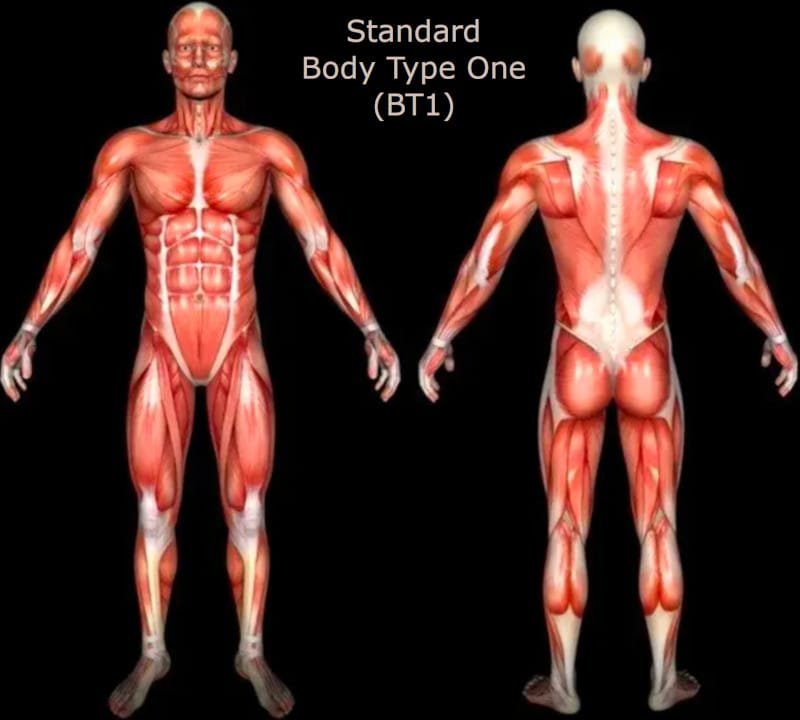
Sarcopenia (1, 2, 3, 4, 5) – the slight, gradual loss of muscle tissue as you age, starting around age 30 but especially after 40 years old (5, 6, 7) — is a main component in the science of aging and longevity. People who are experiencing genetic skinny fat tissue (8, 9) are already at a default genetic muscle/mass disadvantage. So, what is the truth about how skinny fat tissue affects aging and longevity?
There is a lot of talk (10, 11, 12), particularly of late, about how regular white/yellow fat (body fat) weight loss also causes muscle tissue loss. However, not one single study has any valid measurements of each person’s genetic default muscle/mass tissue BEFORE they lost the weight. It is grossly, erroneously, and unscientifically assumed that every person is the Standard Body Type One (BT1) with all 600+ muscles developed. When it is a fact (13) that not every human being is born in a Standard BT1.

Not to mention, many of those people also chose improper diet (calorie deficit/starvation), exercise (too much or too little), and lifestyle (too little sleep, too much stress, etc.) routines (14, 15, 16, 17) that, indeed, could have caused muscle tissue loss. But, many of them are experiencing real skinny fat tissue where genetically they should have default genetic muscle tissue, thanks to their genetics. And have since birth. Skinny fat science is very young, and right now unique genetic body composition is not being given the credence it deserves.
How Skinny Fat Affects Aging & Longevity – Unique Genetic Body Composition
Genetics (18, 19, 20, 21), the hereditary DNA that makes up your genes and is responsible for building and maintaining your human structure, determines every human being’s unique genetic body composition (22, 23, 24, 25, 26) — muscle tissue, regular fat tissue, and skinny fat tissue, no less. Just as you cannot naturally, permanently change your genetic skin color, hair color, eye color, height, genital size, breast size, facial features, or the like, you cannot naturally, permanently change your unique genetic body composition.
 Yes, you can, indeed, temporarily change your unique genetic body composition through epigenetics (23, 27) by adding muscle mass, losing regular fat, and reducing skinny fat (if you are genetically experiencing it) via proper diet, exercise, and lifestyle. And, depending on how much skinny fat tissue you have and how diligent you are with your diet, exercise, and lifestyle throughout your entire life, you may be able to maintain those body composition changes.
Yes, you can, indeed, temporarily change your unique genetic body composition through epigenetics (23, 27) by adding muscle mass, losing regular fat, and reducing skinny fat (if you are genetically experiencing it) via proper diet, exercise, and lifestyle. And, depending on how much skinny fat tissue you have and how diligent you are with your diet, exercise, and lifestyle throughout your entire life, you may be able to maintain those body composition changes.
However, life is hard, and as young people transition into real life, most find — like most adults — that just surviving day-to-day consumes all their time, energy, and resources. Once they no longer have the time and ability to build and maintain muscle mass, inevitably any added muscle mass (above and beyond genetic default muscle/mass) will gradually be lost, and they will eventually return (28) to their original default genetic body composition, including muscle/mass (or lack of) and skinny fat (if they are genetically experiencing it). As well, they will likely gain regular fat weight.
Sarcopenia – How Skinny Fat Affects Aging & Longevity
People genetically experiencing skinny fat tissue have less genetic default muscle/mass tissue and thus have to be more aware of sarcopenia as they age. The more genetic skinny fat tissue a person has, the less muscle tissue they have to lose to begin with. The less genetic muscle tissue a person has, the slower their metabolism (29) and the more prone they are to being overweight or obese while being more susceptible to no less than body dysmorphia, all kinds of disease (heart, cancer, etc.), weakness/frailty, falls, fractures, immobility, lack of functionality, and death (1, 3, 4); especially the older they are.

Moreover, recent research (30, 31, 32, 33) links sarcopenia to neurological and psychiatric mental health disorders including dementia, anxiety, and depression. Although it must be mentioned that because skinny fat science is so new, skinny fat tissue is not factored into any of the currently accepted scientific research. The importance of muscle tissue in relation to long-term overall health (34, 35, 36) and maintaining muscle mass through proper exercise — resistance (37) and cardio (38) — to minimize muscle atrophy and age-related sarcopenia, cannot be understated.
Studies (39, 40, 41, 42) consistently show that less muscle tissue equates to a higher mortality rate and less graceful aging. Of course, overall genetics, diet (43), exercise (44), and lifestyle (45) matter. But, how much muscle mass you have (or don’t have) is a relatively accurate indicator of longevity.
Determining Unique Genetic Body Composition and Health – Scientific Health Quizzes
Fellow One Research has developed the Scientific Health Quizzes using the latest scientific data, evidence, and facts in proprietary algorithms. The Scientific Body Type Quiz accurately determines each person’s unique genetic body composition including skinny fat tissue.
Whereas the Scientific Metabolism Quiz Health Score reckons each person’s unique metrics to accurately estimate Standard BMR and TDEE calories along with whether their metabolism is slow, fast, or normal as well as if their metabolic rate is decreased, steady, or increased. While the Scientific Diet, Exercise, Lifestyle, and Total Health Quizzes offer each person a more comprehensive understanding. All are offered for free.
The Top 8 Skinny Fat Myths, Debunked By Science
References
- WebMD: Sarcopenia With Aging, July 9, 2024, Mary Anne Dunkin and Kim Painter (Medically Reviewed by Zilpah Sheikh, MD).https://www.webmd.com/healthy-aging/sarcopenia-with-aging
- Healthline: How to Fight Sarcopenia (Muscle Loss Due to Aging), May 25, 2017, Matthew Thorpe, MD, PhD. https://www.healthline.com/nutrition/sarcopenia
- NIH, National Library of Medicine: Sarcopenia, July 4, 2023, Andrew D. Ardeljan and Razvan Hurezeanu. https://www.ncbi.nlm.nih.gov/books/NBK560813/
- Cleveland Clinic: Sarcopenia. https://my.clevelandclinic.org/health/diseases/23167-sarcopenia#:~:text=Sarcopenia%20is%20the%20age%2Drelated,can%20contribute%20to%20the%20disease.
- NIH, National Library of Medicine: Sarcopenia in older adults, November 2012, Jeremy D. Walston. https://www.ncbi.nlm.nih.gov/pmc/articles/PMC4066461/
- The Guardian: Scientists find humans age dramatically in two bursts – at 44, then 60, August 14, 2024, Hannah Devlin. https://www.theguardian.com/science/article/2024/aug/14/scientists-find-humans-age-dramatically-in-two-bursts-at-44-then-60-aging-not-slow-and-steady
- nature aging: Nonlinear dynamics of multi-omics profiles during human aging, August 14, 2024, Xiaotao Shen, Chuchu Wang, Xin Zhou, Wenyu Zhou, Daniel Hornburg, Si Wu, and Michael P. Snyder. https://www.nature.com/articles/s43587-024-00692-2
- Skinny Fat Science: What is Skinny Fat?, July 26, 2024. https://skinnyfat.fellowone.com/what-is-skinny-fat/
- Skinny Fat Science: Are Regular Fat and Skinny Fat the Same Thing?, August 28, 2024. https://skinnyfat.fellowone.com/are-regular-fat-and-skinny-fat-the-same-thing/
- NBC News: Weight loss drugs can lead to muscle loss, too. Is that a bad thing?, May 20, 2023, Kaitlin Sullivan. https://www.nbcnews.com/health/health-news/weight-loss-drugs-muscle-loss-rcna84936
- Scientific American: Why You Don’t Just Lose Fat When You’re on a Diet, July 13, 2023, Adam Collins & The Conversation US. https://www.scientificamerican.com/article/weight-loss-why-you-dont-just-lose-fat-when-youre-on-a-diet/
- UCLA Health: Rapid weight loss can lead to loss of muscle mass, May 1, 2024, Ask the Doctors ( Eve M. Glazier, MD Internal Medicine and Elizabeth Ko, MD Elizabeth Ko, MD Internal Medicine). https://www.uclahealth.org/news/article/rapid-weight-loss-can-lead-loss-muscle-mass
- Fellow One Research: Body Type Science Research Data. https://www.fellowone.com/category/body-type-quiz/research-data/
- Healthline: How to Lose Fat Without Losing Muscle, February 3, 2023, Emily Cronkleton (Medically reviewed by Jake Tipane, CPT). https://www.healthline.com/health/exercise-fitness/how-to-lose-fat-without-losing-muscle
- The Conversation: 3 signs your diet is causing too much muscle loss – and what to do about it, July 11, 2024, Nick Fuller. https://theconversation.com/3-signs-your-diet-is-causing-too-much-muscle-loss-and-what-to-do-about-it-223865
- NIH, National Library of Medicine: Effects of Weight Loss on Lean Mass, Strength, Bone, and Aerobic Capacity, January 2017, Edward P. Weiss, Richard C. Jordan, Ethel M. Frese, Stewart G. Albert, and Dennis T. Villareal. https://www.ncbi.nlm.nih.gov/pmc/articles/PMC5161655/
- NIH, National Library of Medicine: Preserving Healthy Muscle during Weight Loss, May 2017, Edda Cava, Nai Chien Yeat, and Bettina Mittendorfer. https://www.ncbi.nlm.nih.gov/pmc/articles/PMC5421125/
- Cleveland Clinic: DNA, Genes & Chromosomes, May 20, 2022. https://my.clevelandclinic.org/health/body/23064-dna-genes–chromosomes
- MedlinePlus: What is a gene? https://medlineplus.gov/genetics/understanding/basics/gene/
- NIH, National Library of Medicine: Heredity, Genes, and DNA, https://www.ncbi.nlm.nih.gov/books/NBK9944/
- Centers for Disease Control and Prevention (CDC), Genomics and Your Health: Genetics Basics, May 15, 2024. https://www.cdc.gov/genomics-and-health/about/index.html
- ScienceDirect: Body Composition, 2019, Encyclopedia of Endocrine Diseases (Second Edition). https://www.sciencedirect.com/topics/biochemistry-genetics-and-molecular-biology/body-composition
- Vanderbilt Unversity, Basic Sciences: DNA is the ultimate blueprint— but epigenetics changes how it’s read, May 7, 2024, Marissa Shapiro. https://medschool.vanderbilt.edu/basic-sciences/2024/03/07/dna-is-the-ultimate-blueprint-but-epigenetics-changes-how-its-read/
- AP News: Scientists finally finish decoding entire human genome, March 31, 2022, Laura Ungar. https://apnews.com/article/science-health-genetics-4d2fba43b7b72ce67fa86b753dd77b42
- ScienceNews: The human blueprint, Century of the gene, February 7, 2022. https://www.sciencenews.org/century/dna-genetics-genome-code-medicine-diversity
- Harvard Health Publishing: Why people become overweight, June 24, 2019. https://www.health.harvard.edu/staying-healthy/why-people-become-overweight
- Skinny Fat Science: How To Fix Skinny Fat, July 27, 2024. https://skinnyfat.fellowone.com/how-to-fix-skinny-fat/
- Fellow One Research: Research Participant 378 – Body Type Two (BT2) Male (Man), Millennial (Generation Y). https://www.fellowone.com/fellow-one-research/the-four-body-types/body-type-quiz/research-participant-378-body-type-two-bt2-male-man-millennial-generation-y/
- Skinny Fat Science: How Skinny Fat Affects Metabolism, August 7, 2024. https://skinnyfat.fellowone.com/how-skinny-fat-affects-metabolism/
- NIH, National Library of Medicine: Prevalence of depression in patients with sarcopenia and correlation between the two diseases: systematic review and meta‐analysis, February 12, 2022, Zhenzhen Li, Xiang Tong, Yao Ma, Ting Bao, and Jirong Yue. https://www.ncbi.nlm.nih.gov/pmc/articles/PMC8818614/
- BMJ Journal: Is sarcopenia associated with anxiety symptoms and disorders? A systematic review and meta-analysis protocol, Volume 11, Issue 11, Emma C West, Lana J Williams, Kayla B Corney, and Julie A Pasco. https://bmjopen.bmj.com/content/11/11/e054125
- Nature, Translational Psychiatry: Association between probable sarcopenia and dementia risk: a prospective cohort study with mediation analysis, October 1, 2024, Yitong Ling, Shiqi Yuan, Xiaxuan Huang, Shanyuan Tan, Hongtao Cheng, Li Li, Shuna Li, Liying Huang, Anding Xu & Jun Lyu. https://www.nature.com/articles/s41398-024-03131-3
- Oxford Academic, Age and Aging: Is sarcopenia associated with depression? June 14, 2017, Volume 46, Issue 5, Ke-Vin Chang, Tsai-Hsuan Hsu, Wei-Ting Wu, Kuo-Chin Huang, and Der-Sheng Han. A systematic review and meta-analysis of observational studies
- Healthline: 14 Benefits of Strength Training, August 19, 2024, Katey Davidson, MScFN, RD, CPT (Medically reviewed by Jared Meacham, PhD., RD, CSCS). https://www.healthline.com/health/fitness/benefits-of-strength-training
- NIH, National Library of Medicine: Live strong and prosper: the importance of skeletal muscle strength for healthy ageing, January 20, 2016, Michael McLeod, Leigh Breen, D. Lee Hamilton, and Andrew Philp. https://www.ncbi.nlm.nih.gov/pmc/articles/PMC4889643/
- NIH, News In Health: Maintain Your Muscle, March 2020. https://newsinhealth.nih.gov/2020/03/maintain-your-muscle
- Skinny Fat Science: Best Skinny Fat Resistance Exercises, September 4, 2024. https://skinnyfat.fellowone.com/best-skinny-fat-resistance-exercises/
- Skinny Fat Science: Best Skinny Fat Cardio Exercises, September 11, 2024. https://skinnyfat.fellowone.com/best-skinny-fat-cardio-exercises/
- Nature, Scientific Reports: Skeletal Muscle Mass as a Mortality Predictor among Nonagenarians and Centenarians: A Prospective Cohort Study, February 20, 2019, Hui Wang, Shan Hai, Yixin Liu, Ying Liu, and Birong Dong. https://www.nature.com/articles/s41598-019-38893-0
- Worth Magazine: Muscle Is the Cornerstone of Longevity, July 26, 2024, Gabrielle Doré. https://worth.com/muscle-is-the-cornerstone-of-longevity/
- NIH, National Library of Medicine: Muscle Mass Index as a Predictor of Longevity in Older-Adults, February 19, 2014, Preethi Srikanthan, M.D., M.S. and Arun S. Karlamangla, M.D., Ph.D. https://www.ncbi.nlm.nih.gov/pmc/articles/PMC4035379/
- Stanford Lifestyle Medicine: Stop The Clock: The Shocking Truth About Age-Related Muscle Loss and Steps to Fight Back, April 11, 2023, Sarita Khemani, MD. https://longevity.stanford.edu/lifestyle/2023/04/11/stop-the-clock-the-shocking-truth-about-age-related-muscle-loss-and-steps-to-fight-back/
- Skinny Fat Science: The Best Skinny Fat Diet, According to Science, July 29, 2024. https://skinnyfat.fellowone.com/the-best-skinny-fat-diet-according-to-science/
- Skinny Fat Science: The Best Skinny Fat Exercise, According to Science, August 2, 2024. https://skinnyfat.fellowone.com/the-best-skinny-fat-exercise-according-to-science/
- Skinny Fat Science: The Best Skinny Fat Lifestyle, According to Science, August 14, 2024. https://skinnyfat.fellowone.com/the-best-skinny-fat-lifestyle-according-to-science/

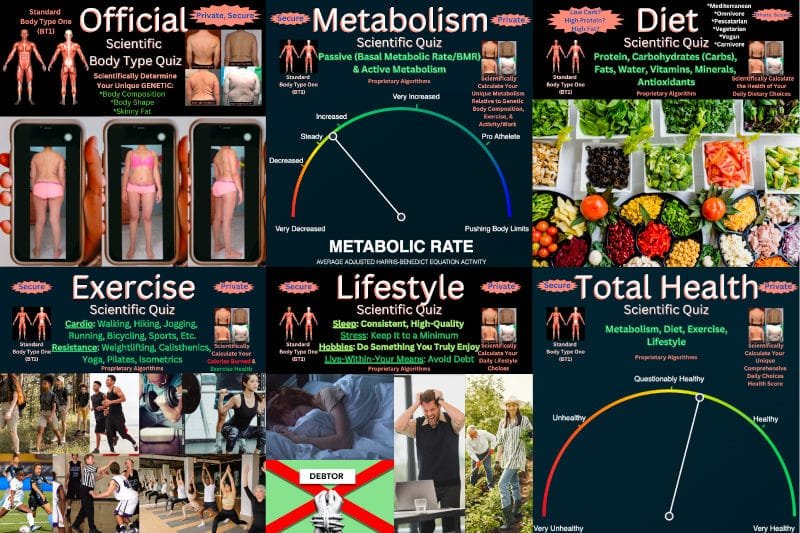
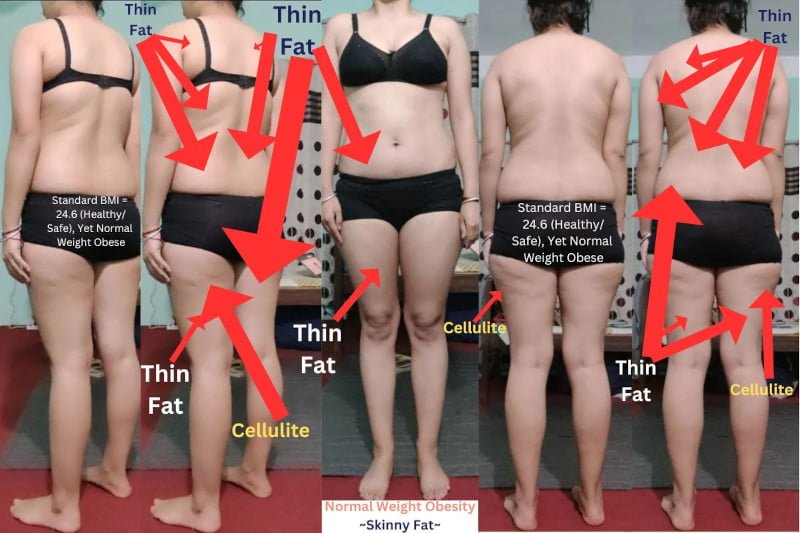





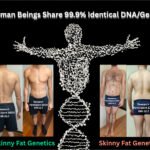
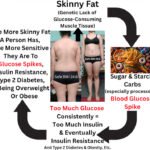



the importance of muscle mass